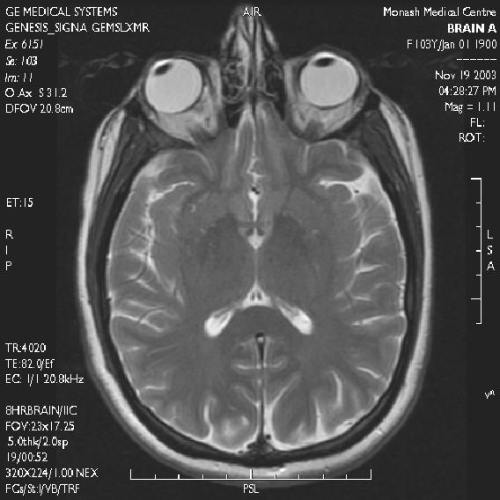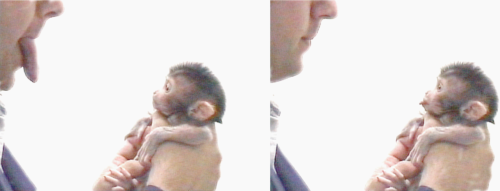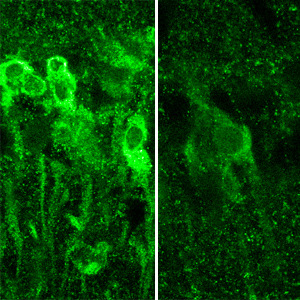 |
| Image generated with MRI technology. |
MRI (Magnetic Resonance Imaging) is a medical imaging technology that uses high-powered magnets (up to 30,000x stronger than Earth's magnetic field) to generate images of the body. It is especially useful in developing images of the soft tissues of the body, more so than CT scanning or X-rays. Unlike X-rays or CT scans, MRI uses no radiation.
A typical MRI scan can last anywhere from 30 minutes to an hour. The patient lies still within a long tube, where radiowaves pass through the patient's body. This realigns the nuclei of their cells. As the nuclei move back into their normal position, they send out radiowaves of their own, which the computer then interprets as a picture.



